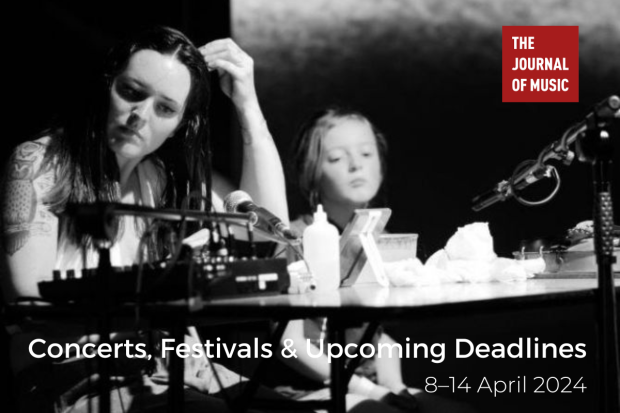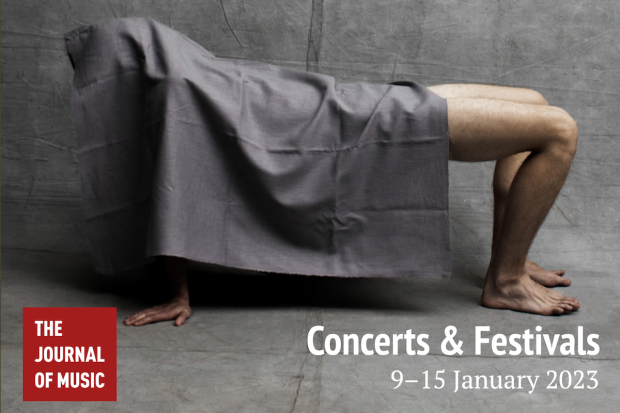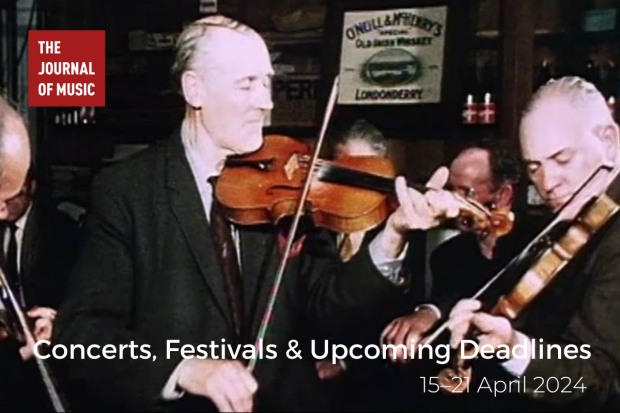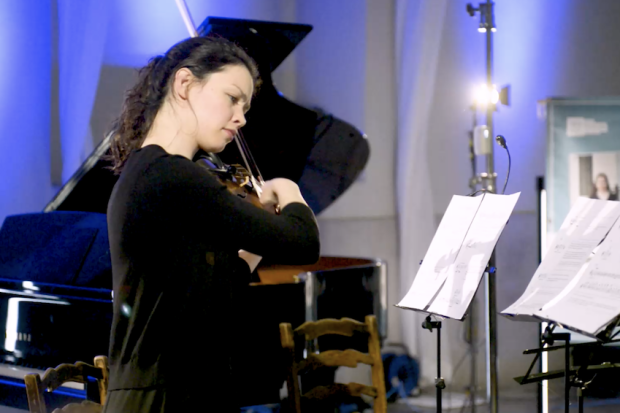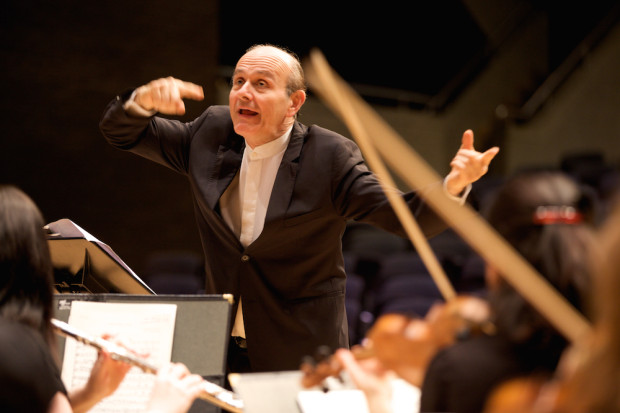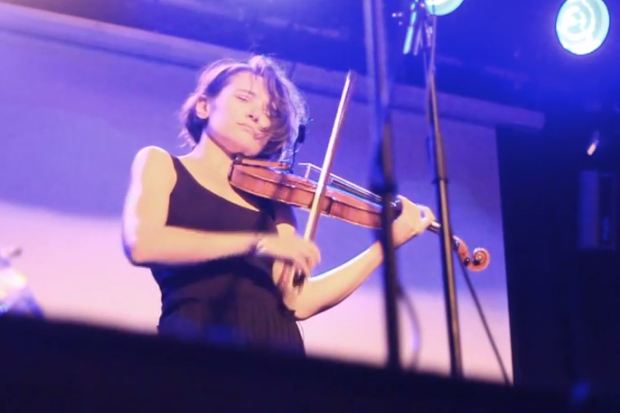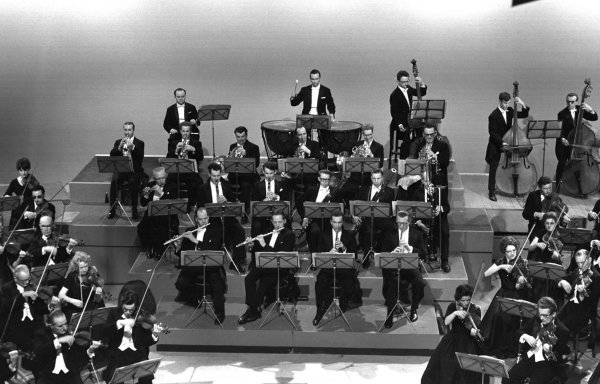
Radio Éireann Symphony Orchestra
Needed: Flight Simulator
The lack of adequate music education in Ireland in the first part of the twentieth century was a severe obstacle to the formation of an orchestra of concert standard, with string players from the Royal Irish Academy of Music (RIAM) being joined by wind and brass players from the army and police bands in what was often a most unharmonious mésalliance. In recruiting players to the newly formed Radio Éireann Symphony Orchestra and RÉ Light Orchestra in 1947-8, the Secretary of the Department of P&T, León Ó Broin, and the Music Director, Fachtna Ó hAnnracháin, correctly identified the poor standard of music education in Ireland as the chief reason for the failure of Irish-trained musicians to secure employment in the orchestras.
As the musicians’ union, IFMAP, said in 1965, when making a major plea for the establishment of such a school:
If we want to establish ourselves as a musical nation, the way lies through the education of our people and the affording of opportunities to young and promising musicians to advancement… The process will be slow and unspectacular, but in the long run other countries might be more impressed by a nation in its shirt sleeves rather than by imported expertise… [Young Irish musicians] should not have to wait until the struggle for existence has dulled their sensibility and vitality.
The basic fact, as Albert Rosen put it to me back in the 1970s when he was principal conductor of the RTÉ SO, is that students getting deputy work, sitting at the back desk of the second violins, ‘either look at me and don’t see the music, or they are glued to the music and they can’t see me!’ Two of his successors, Alexander Anissimov and Gerhard Markson, have spent short periods of time beneficially with the RIAM, but what is needed is what Niall Doyle, RTÉ’s Director of Music, refers to as a trainee pilot’s ‘flight simulator’, available to all aspiring orchestral players in Ireland, which intensively and extensively prepares them for the orchestral repertoire which they cannot get from one-to-one teaching of the solo works. A frequent gripe of RTÉ personnel is that these student deputies may well be able to play a concerto, but don’t have the stamina for the symphonic repertoire of Brahms, Shostakovich et al at a professional level, day-in-day-out. Certainly, if they are not provided with this kind of opportunity in Ireland, the flow of students abroad will continue, with the risk that many or most of them will get jobs abroad and not come back to stimulate Irish music-making.
The RIAM was at the lowest point in its history in the early 1950s, when it was just over a century old, and the Municipal School of Music (now the DIT Conservatoire) was ill-situated to train orchestral musicians. A mutual rivalry and a mutual suspicion had grown up between the two institutions, based originally on class preconceptions: traditionally, the clientele of the Academy had been drawn, as one of its constitutive documents had stated, from among ‘the children of respectable Irish parents’ – and its students acquired a genteel knowledge of piano, violin and singing predominantly; its daytime teaching hours and its high fees precluded the less well-off and those who worked for a living. To compensate for this situation, and to remedy the decline in the standards of the city’s many brass and reed bands, the Municipal School had been founded specifically for the education of ‘artisans’, and focussed on wind and brass instruments. Thus the class differential between the two establishments was emphasised by the difference in the style and content of their curricula.
The point needs to be emphasised because the stand-off between the two institutions has always been perceived by those outside them as the reason for failure of initiatives to effect some kind of merger of the two into a national conservatoire, right up to the recent failed attempt to create an IAPA (failed in my view because it was politically ill-conceived).
A departmental memorandum of 1959 referred to the basic problem in the following terms: ‘The building up of the Radio Éireann Orchestras has been a painstaking and at times a heartbreaking task which has extended over the last 15 years or so. We have the problem that we have not got a teaching institution of conservatoire standard in this country.’
In 1949 an attempt had been made by Radio Éireann to improve the situation with regard to the standard of teaching in the Municipal School by setting up a ‘Vocational Day School for Music’, with approximately twelve students aged 14-16 who were known to be interested in enrolling for a four-year programme which would teach Irish, English and a third language (French, German or Italian), and mathematics, in addition to instrumental tuition and music theory. This came to nothing, due to an ill disposition on the part of the VEC which at that time was responsible for the Municipal School.
However, a major breakthrough occurred in 1951, within a month of Erskine Childers taking office as Minister for Posts and Telegraphs. Aware of dissatisfaction concerning the employment of foreign players, expressed by ‘the home members of the Orchestras and … TDs prompted by them and Trade Union sources such as the Federation of Irish Musicians’, Ó Broin suggested that simultaneously Fachtna Ó hAnnracháin should seek recruits in conservatoires abroad, while bringing influence to bear on the RIAM: ‘The teaching facilities generally are at present so poor that there would be no prospect whatever of bringing Irish musicians up to the standard needed unless some radical change was made’. The RIAM had recently employed the Czech violinist Jaroslav Vanek ‘and the standard of violin teaching has since improved immensely’. Vanek and his wife Kveta had become teachers at both the RIAM (1949-55) and the Municipal School (1954-73); they were to be the ‘parents’ of a generation of Irish string players whose timbre, resonant of the string sound of mittelEurop, was to characterise the playing not only of the RTÉSO but also of the Irish Chamber Orchestra and its successor, NICO, well into the 1980s. Some of their students such as Mary Gallagher (leader of NICO 1970-80 and today of the Orchestra of St Cecilia), Margaret Hayes and Audrey Park, achieved outstanding success.
The result was an increase in the government grant to the RIAM which enabled it to employ several more of the foreign players in the RÉSO, especially in the wind and brass department: players of the calibre of André Prieur (flute), Gilbert Berg (bassoon), Michele Incenzo (clarinet) and Novemo Salvadore (trumpet and trombone).
The most significant point about this initiative is that, as Minister for P&T, Childers had no responsibility for music education, but as Minister presiding over the fortunes of the country’s two professional orchestras he had an anxiety about the quality of Irish musicianship. In fact at this stage RÉ did run a small training orchestra for strings, directed by Vanek and Eimear Ó Broin (son of León, who had just been appointed Assistant Conductor in RÉ), but this was short-lived.
Parallel to the negotiations with the RIAM and Municipal School, RÉ also sought to make improvements in the area that presented most difficulty, and via the channel from which it had traditionally, but temporarily, solved that difficulty: the Army School of Music. There was a continuing anxiety to bring about a long-term solution to the availability of Irish wind and brass players. Exhaustive discussions took place through the late 1950s to try to set up a scheme whereby RIAM teachers would give instruction to cadet bandsmen, with a view to their securing positions in the RÉ orchestras, but eventually RTÉ was informed in 1960 that it had been overtaken by political and cultural forces majeures in both the Army and RTÉ: nothing further was done to implement the scheme ‘because of the preoccupation of Defence with the sending of troops to the Congo and because of the preparations for the starting of Television’.
In January 1966 Tibor Paul (who was both Director of Music and Principal Conductor of the RTÉSO) convened a meeting representative of the music teaching profession, which achieved a remarkable agreement by the RIAM and the Dublin College that their senior students would amalgamate to form ‘the nucleus of a National Youth Orchestra or Training Orchestra which could tour and fill many of the gaps in provincial performances’, with players receiving a token salary. Once again, however, the trail went cold.
During the 1970s RTÉ cursorily returned to the issue on a few occasions, but finance was a deterrent: Gerard Victory (Director of Music since 1967) several times pointed out that the money needed to finance a training orchestra would be better spent in more pressing areas: ‘The establishment of a Youth or training Orchestra would certainly help, but I do not foresee RTÉ being able to undertake this. It is a project which the Arts Council might perhaps subvent.’ So the overriding problem remained: how to create an environment in which young would-be rank-and-file orchestral players could learn the relevant skills in a pre-professional situation.
In the early 1990s the RIAM put forward a proposal to RTÉ for the establishment of a national training orchestra which would go much further than any current training opportunities in Ireland, such as the National Youth Orchestra’s twice-yearly residential courses. Ironically, the episode of the ‘PIANO’ review group, questioning whether RTÉ was the best custodian of the NSO, interrupted this. Although the PIANO report did in fact recommend that the NSO should be separate from, and independent of, RTÉ, the proposal died due to the change of government. And although the PIANO report did also recommend the establishment of a national training orchestra (which had been the subject of a lengthy RIAM submission to PIANO) the RIAM proposal also died because the powers-that-were in RTÉ had to give priority to the knock-on effects of the PIANO episode.
In 2002-3 the RIAM renewed its proposal, which is now under discussion and several earlier models are being examined: the BBC Academy and the National Centre for Orchestral Studies in the UK and the National Training Orchestra run by Australian Broadcasting, all of which were killed by rationalisation of one kind or another. A new scheme, run by the national orchestra of Sweden in association with Gothenburg University, has just begun and this merits close attention.
Lest it be thought that Ireland is backward in this respect, it should be said that there are very few such training orchestras anywhere in the world, and the more successful are those attached in some way to a major orchestra such as those in Chicago and London. The ‘secret history’ recounted in this short extract from my forthcoming book (Ceol-Áras: music and broadcasting since 1926) shows that the problem has been recognised for many decades, and that RTÉ has acknowledged its own need to improve the standard of young players but has also come up against the problem of how to finance and administer it. The admission in the recent past, by the chief executives of two Irish orchestras, that students graduating from the RIAM and the DIT Conservatoire are largely unqualified for orchestral work gives one plenty of room to question what is, or is not, being achieved in third-level music education, or whether there are any stated objectives in this area, or policies to achieve them.
Published on 1 January 2004
Richard Pine, Director of the Durrell School of Corfu, is a former Concerts Manager in RTÉ. He is the author and editor of books on Irish music history and of definitive studies of Oscar Wilde, Brian Friel and Lawrence Durrell.












